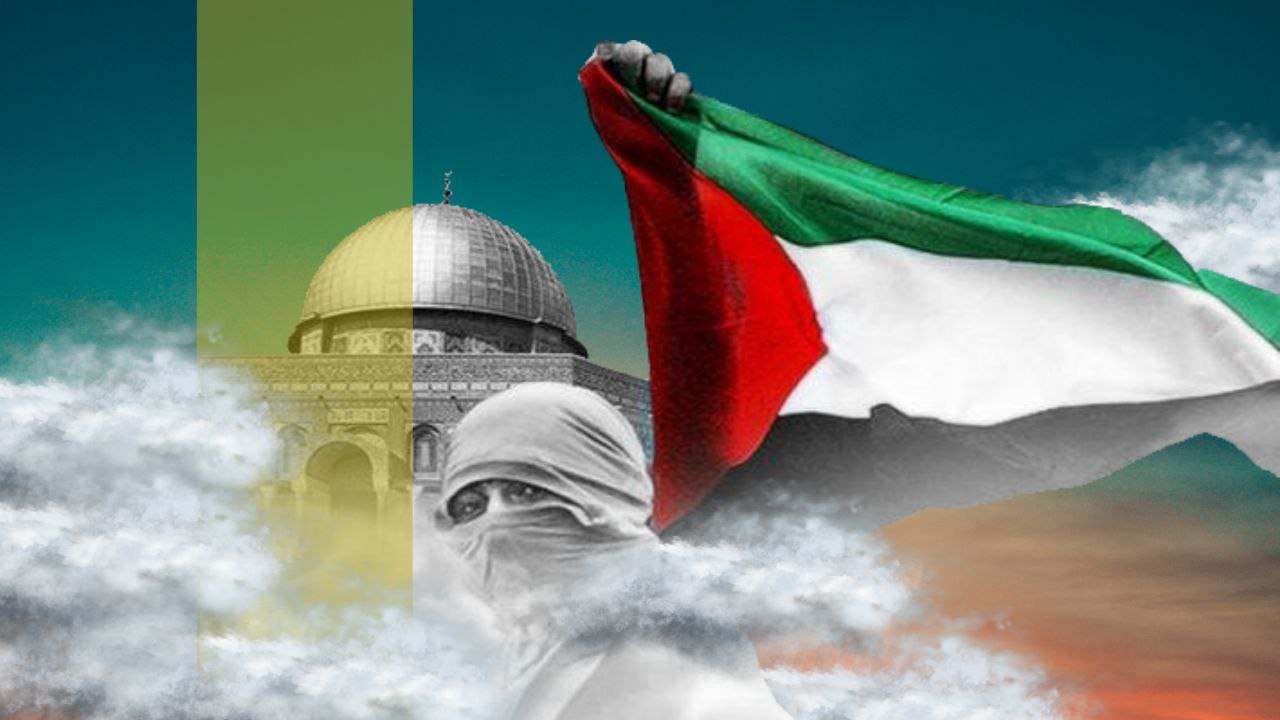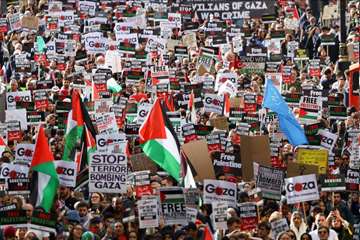Iran Remembers suffering Palestinians on Quds Day
Today, the last Friday of the Islamic holy month of Ramadan, also known as International Quds Day, is observed by the Islamic Republic of Iran and is dedicated to the Palestinian people suffering at the hands of Israeli bombardments, starvation and genocide. This day also has to be understood from an African perspective. Nelson Mandela once remarked: “But we know too well that our freedom is incomplete without the freedom of the Palestinians.”

Herald Correspondent
Today, the last Friday of the Islamic holy month of Ramadan, also known as International Quds Day, is observed by the Islamic Republic of Iran and is dedicated to the Palestinian people suffering at the hands of Israeli bombardments, starvation, and genocide.
This day also has to be understood from an African perspective. Nelson Mandela once remarked: “But we know too well that our freedom is incomplete without the freedom of the Palestinians.”
His sentiments were also shared and echoed by Imam Khomeini when he said: “We are on the side of the oppressed, whichever pole they may be in. Palestinians are oppressed by the Israelites, therefore, we side with them.”
With it, the Islamic Republic of Iran raises awareness about the ongoing Israeli occupation of Jerusalem, particularly the Old City, which is home to significant religious sites for Muslims, Christians, and Jews.
Today is envisioned to emphasize the importance of Jerusalem in the Muslim world and is an expression of support for the Palestinian struggle for self-determination and the establishment of an independent Palestinian state with Jerusalem as its capital.
Quds is a term that refers to the Arabic name for Jerusalem, and it holds great religious and historical significance for multiple faiths.
The day’s observation is not only in Iran but around the world, particularly in predominantly Muslim nations. It serves as a platform for various activities such as rallies, demonstrations, and speeches that highlight the plight of the Palestinians and condemn ongoing unjustifiable, racist, and apartheid-Israeli policies.
Of note is that Quds Day comes a few days after Palestinians observed Land Day, or Yom al-Ard, where they were recalling the events of March 30, 1976, when six unarmed Palestinians were killed and more than 100 injured by Israeli forces during protests against Israel’s confiscation and theft of Palestinian land.
As such, today Iran raises the voice and hopes of all people in retaining the memory that Jerusalem is the eternal capital of Palestine, that “from the river to the sea, Palestine will be free, Jerusalem is at the heart of thee.”
For a large number of Africans, the term occupation is synonymous with colonialism, and for both Palestinians and Africans, it invokes images and memories of racism, discrimination, oppression, brutality, indulgence, undue privilege (for some), pretension, resistance, and ultimately emancipation. All these forms are necessitated by the history of segregation, racism, or, most appropriately, apartheid.
Therefore, “reducing the Palestinian issue to a purely Palestinian and at most Arab issue is a grave mistake, the Palestinian issue is a human one.”
Israel’s Apartheid system in Palestine is derived from an Afrikaans word for "apartness," originally used to describe the system of racial discrimination that existed in South Africa until 1994.
The term apartheid is not only a reference to South Africa’s former regime but it is also used in international law to describe a category of regimes, defined in the 1973 United Nations (UN) International Convention on the Suppression and Punishment of the Crime of Apartheid, to which more than 100 states are signatories.
Article 7 of the Rome Statute of the International Criminal Court identifies the crime of apartheid as: “inhumane acts committed in the context of an institutionalized regime of systematic oppression and domination by one racial group over any other racial group or groups and committed with the intention of maintaining that regime.”
This gives reference to Israel. It is an apartheid state because there is overwhelming evidence that the system instituted by the Israeli government against the Palestinian people meets the UN definition of apartheid.
The oppression of the Palestinian population is most severe in the occupied territories. In the West Bank, Israel continues to impose harsh military rule on Palestinians while affording Jewish Israelis living in a segregated manner in the same territory their full rights under Israeli civil law. Palestinians also living in the West Bank are governed by Israeli military law.
By simply being Palestinians, millions of people have had their fundamental rights violated by Israeli occupying authorities. Palestinians are subjected to systematic practices and long-standing policies that oppress, marginalize, dispossess, and otherwise cause pain.
Movement restrictions, land expropriation, forced relocation, denial of residency and nationality, and widespread suspension of civil rights are all considered “inhumane acts” in the occupied Palestinian territory as defined by the Rome Statute and the Apartheid Convention.
According to both legal definitions, apartheid is a crime against humanity when brutal acts are committed in the context of systemic oppression to retain dominance.
It is why Iran hoards its support and voice for the voiceless Palestinians, who are being denied the right to exist as human beings by the Israeli occupation.
For Africa, it is key to keep the memory of the struggle by Palestinians alive. Quds Day is one of the days to remember that

